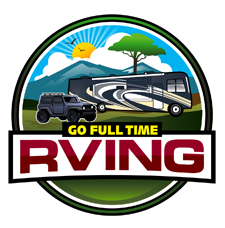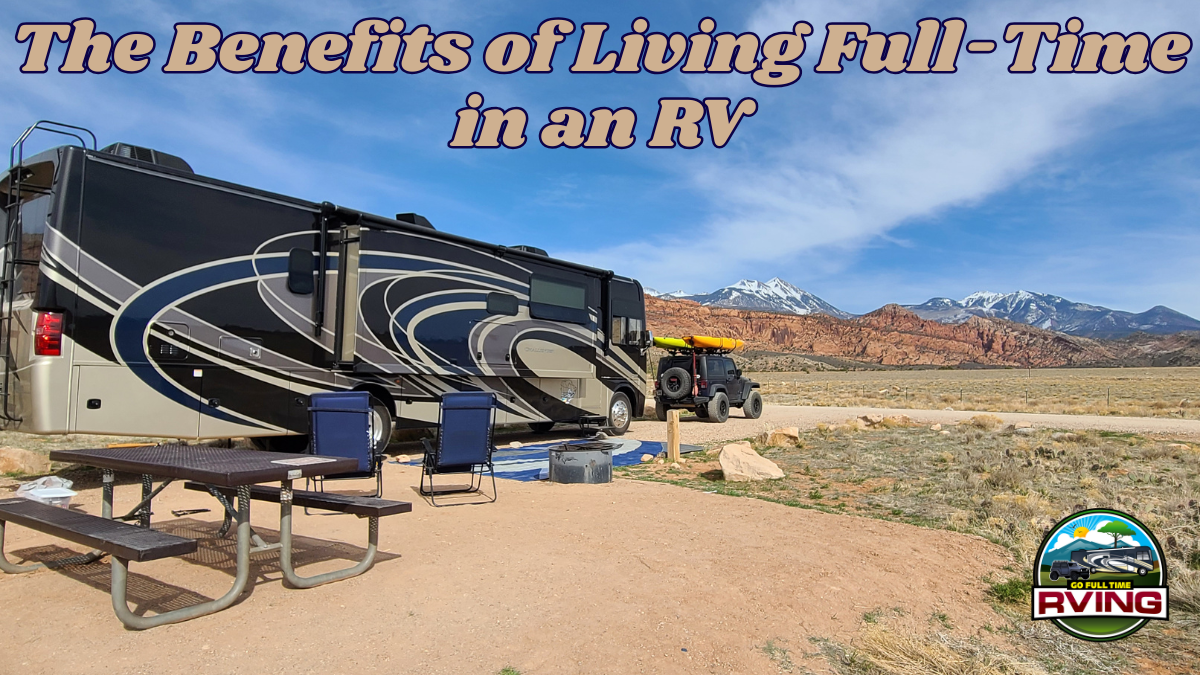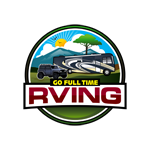As the world speeds up and technology increasingly takes over more of our daily lives, a growing number of people are choosing to slow down, simplify, and focus on what truly matters. Enter the RV lifestyle.
Living full-time in an RV offers a unique blend of freedom, flexibility, and potential financial advantages—not to mention a front-row seat to some of the most beautiful scenery in North America. In fact, more than 1 million people have traded a traditional house for a home on wheels.
Here’s why so many of us have made the switch—and why you might want to join us.
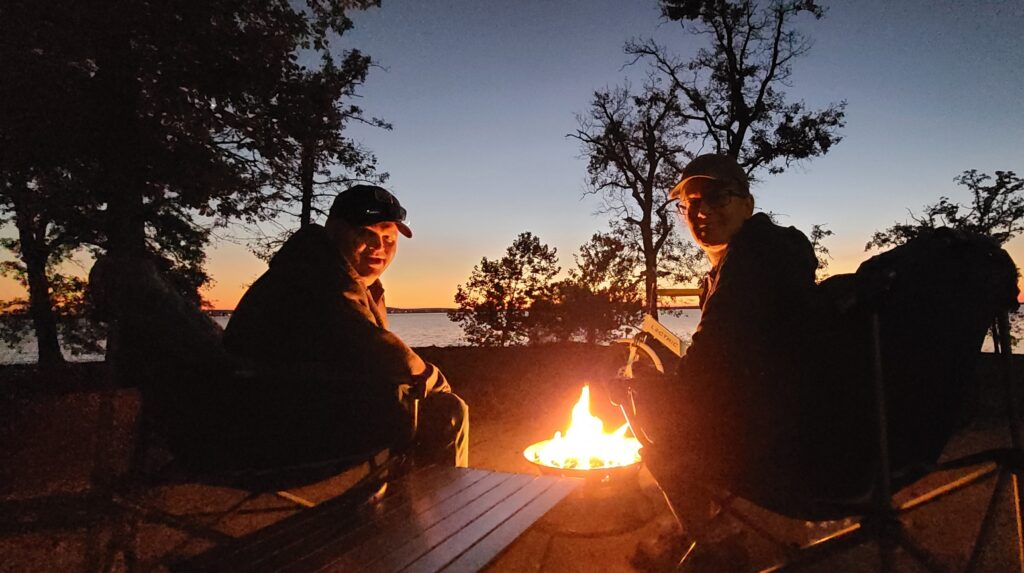
This post contains affiliate links. As a participant in Amazon Associates and various affiliate programs, we are compensated when qualifying purchases are made through our referral links at no additional cost to you. Full Disclosure
Freedom and Flexibility
When you live in a traditional home, your life is naturally tied to one location. Living full-time in an RV flips that on its head.
You decide where your “backyard” is. Want ocean views this week and mountain air next week? Done. Got a phone call about a must-see family event across the country? You can be there. If a campground doesn’t suit you—or the weather turns—you simply move on.
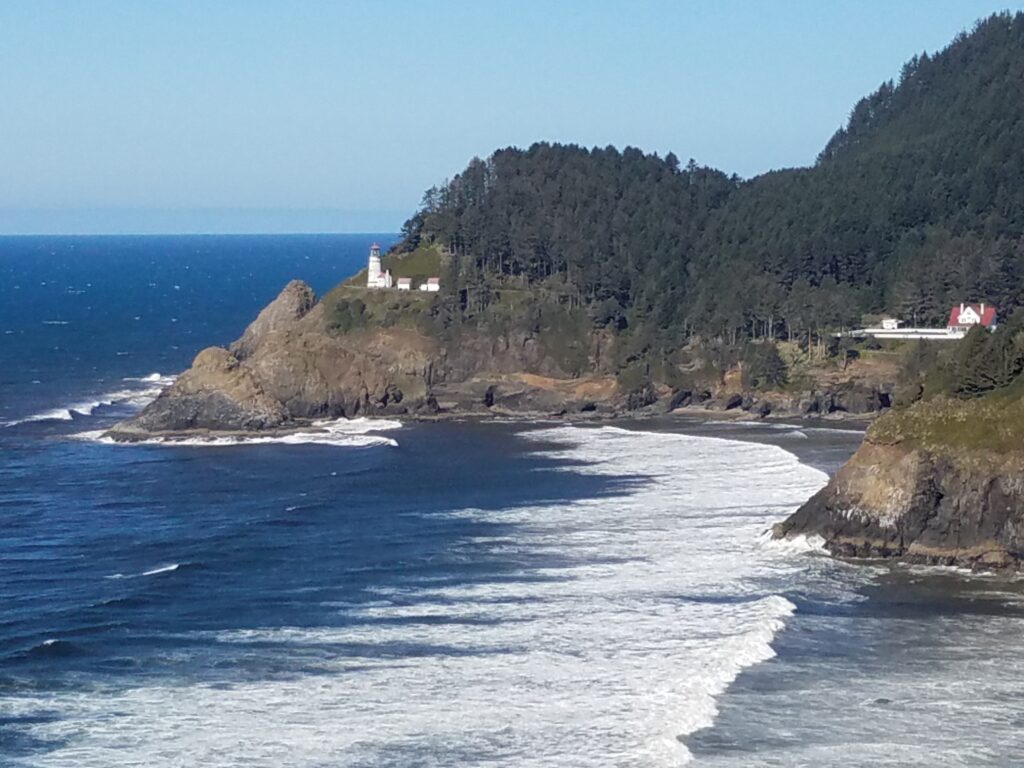
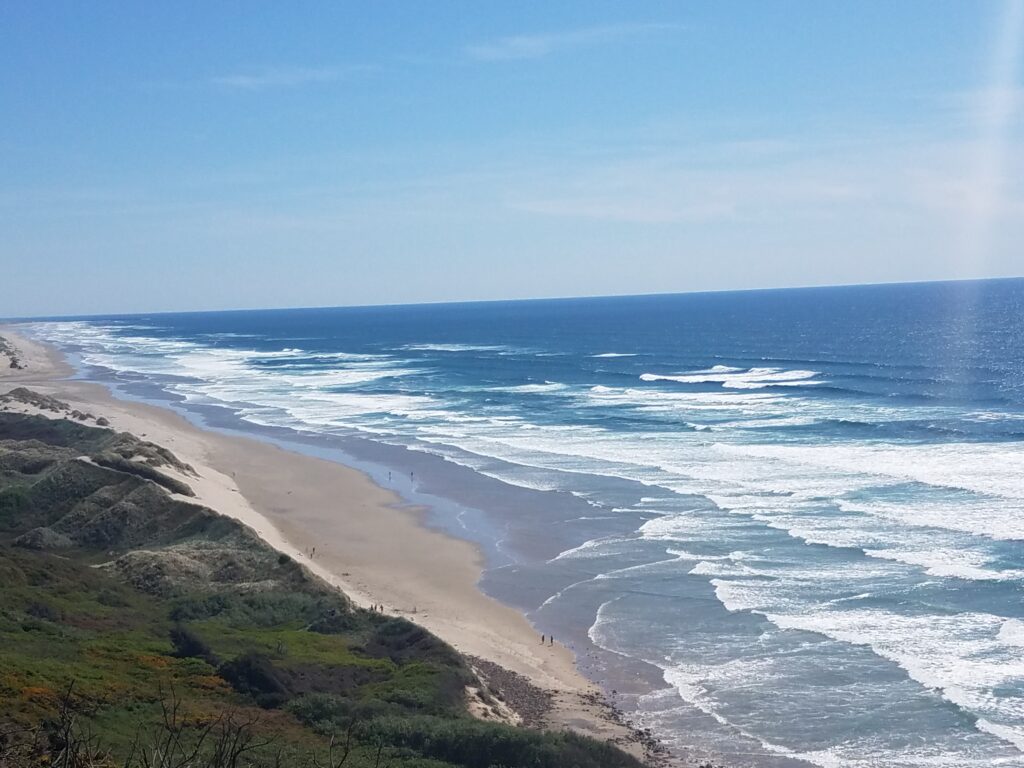
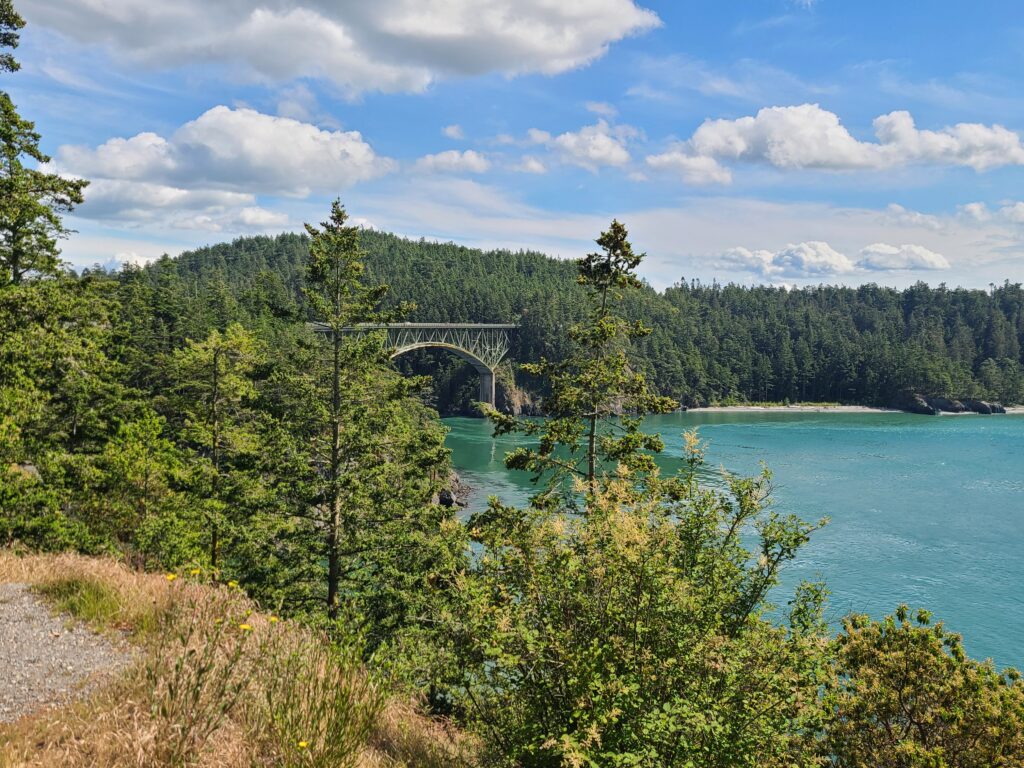
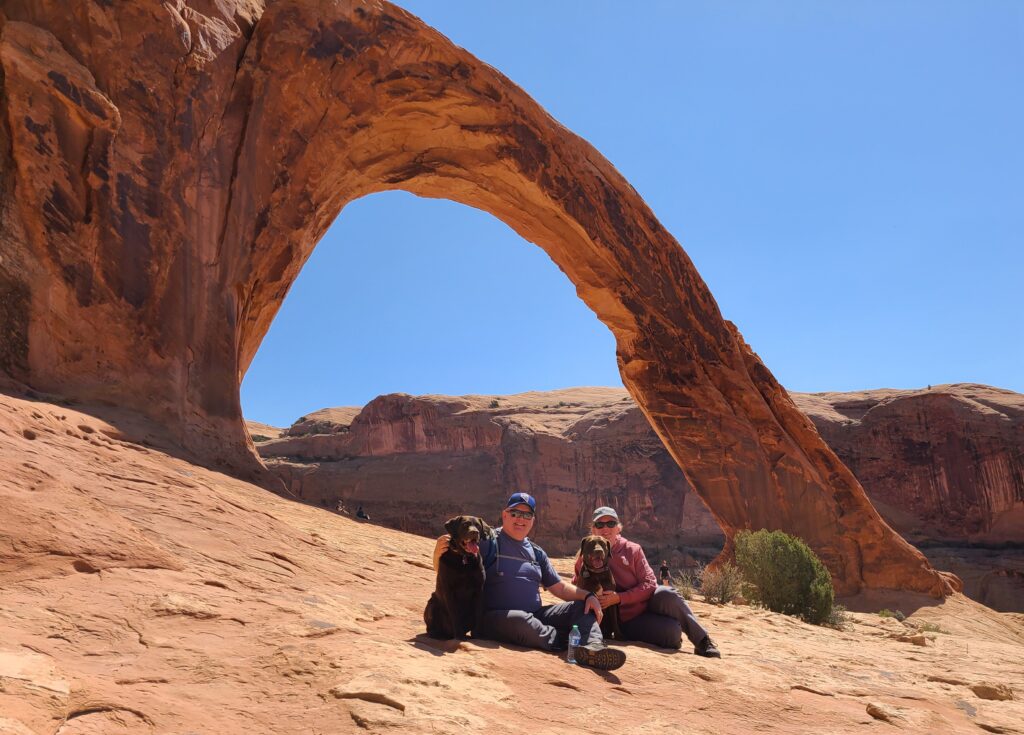
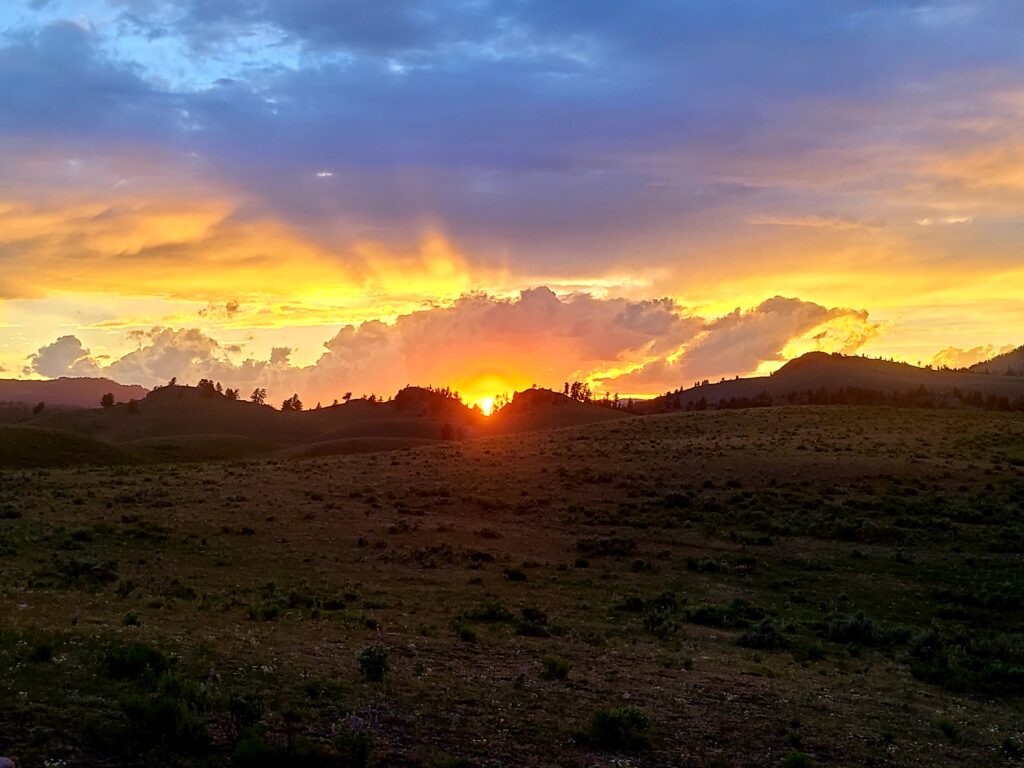
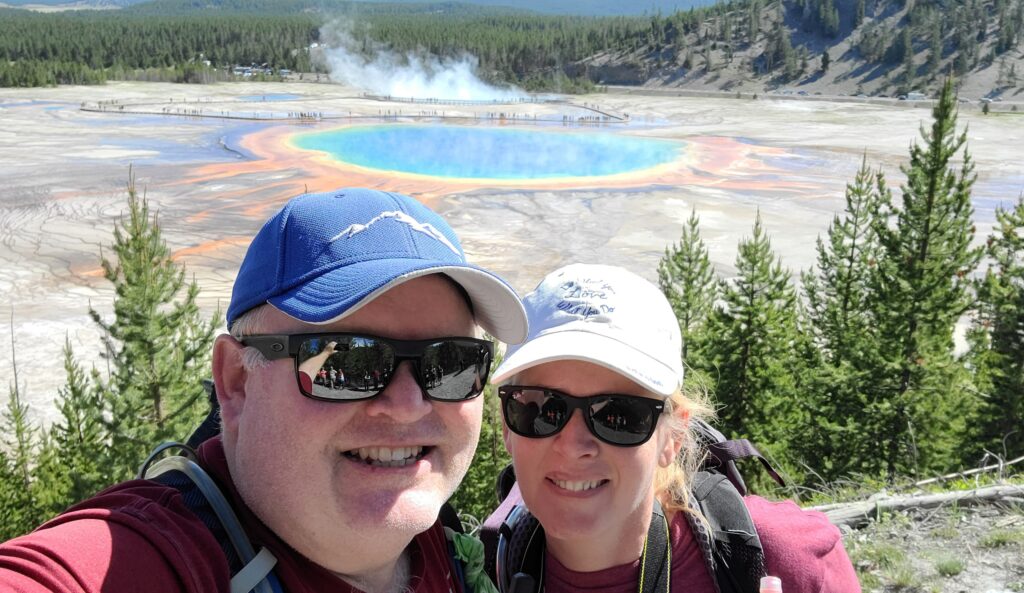
Before RV life, taking a trip usually meant a week-long vacation that felt rushed—trying to cram in all the sights, check out of the hotel by 11 a.m., and head home before work started again. Now, if we love a place, we can stay for a month. If we’re ready for something new, we just move on.
When we wrapped up our winter gate guarding job in Texas, we stayed in the area for a while—until a hurricane came barreling toward Houston. Within hours, we decided it was time to go. We pointed the motorhome toward Colorado, making stops along the way to visit some National Parks we hadn’t seen yet. That kind of quick pivot is something only RV life allows.
Potential Financial Savings
RV life isn’t necessarily cheaper than living in a sticks-and-bricks home. You still have plenty of maintenance and upkeep—and RVs aren’t exactly known for flawless construction. There’s always something to fix, adjust, or upgrade. Tires, oil changes, roof resealing, appliance repairs—they’re all part of the deal.
That said, you can control many of your costs. We save by joining RV membership programs like Thousand Trails and Harvest Hosts, choosing budget-friendly campgrounds, and occasionally boondocking for free on public lands.
Our Thousand Trails membership paid for itself during COVID when we were allowed to stay at South Jetty RV & Camping Resort for 10 weeks—far longer than the usual 21-day limit. That extended stay alone, plus all the other nights we’ve used it, has meant the membership has paid for itself many times over.
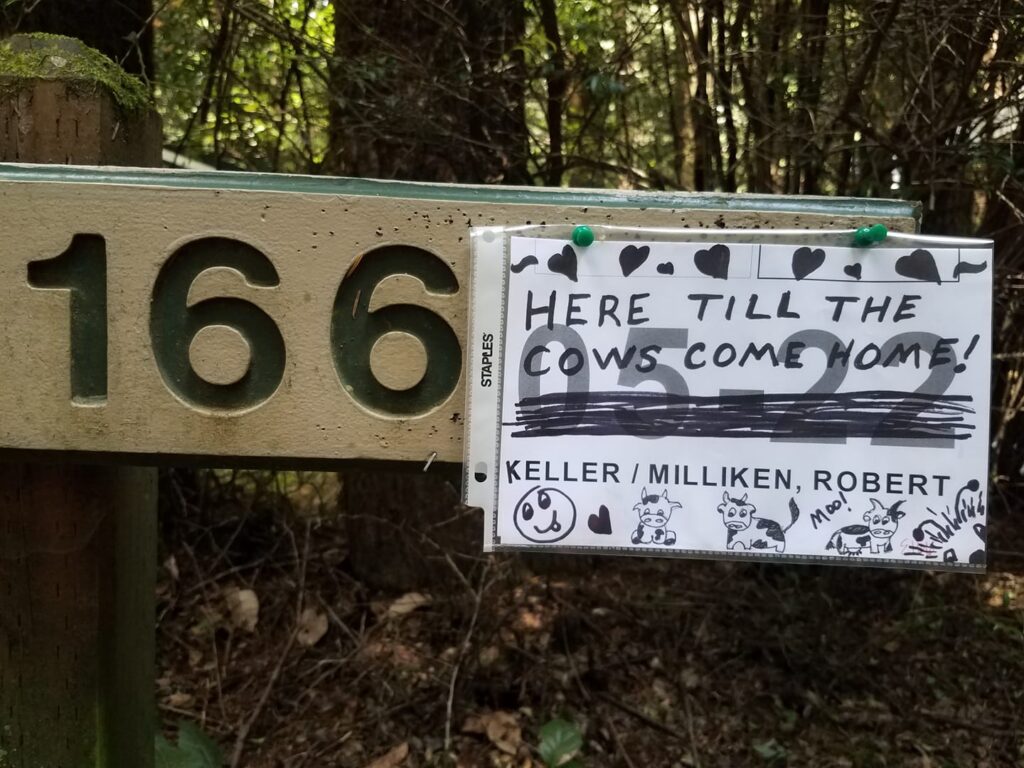
Ready to Save on Campgrounds?
Looking to explore Thousand Trails without a big upfront investment? The Thousand Trails Camping Pass is a great way to get started—no long-term contract required. Camp “free” at hundreds of campgrounds for one flat annual fee!
👉 Get $155 Off Your Camping Pass
Workamping Opportunities
One of the great things about full-time RV living is that you can take your job on the road—or find temporary work wherever you decide to travel. Many people think of Workamping as just being a campground host, but the opportunities go far beyond that.
In our time on the road, we’ve only had one traditional campground host position. We’ve also worked at beach kiosks taking parking fees, at the JCPenney Distribution Center during the holiday rush, in a camera store, and at three different types of gate guarding jobs. The variety has kept things interesting, allowed us to learn new skills, and helped us fund our travels without being tied to one location year-round.

Workamping jobs are everywhere—you just have to match your interests and skills to the opportunities available in the areas you want to explore.
There are jobs all over the country looking for full-time RVers like us to come work for them for a few weeks, a season, or longer. Regardless of how much you’ve saved to start the RVing adventure, you may likely need or want to supplement your income while on the road. You can easily do this with just a little creativity, a lot of flexibility, and an adventurous spirit with regard to jobs for RVers and Workamping! Workamping can be a great way to travel and see the country while earning a living along the way. We highly recommend giving it a try.
Learn about Workamping here. If you sign up, there is a box where the new member can enter our name and number as the person who referred them. Please put that Rob & Lisa Member Number: 212855 referred you. You’ll get a great deal on the subscription, and we’ll get a small commission. Thank you.
A Closer Connection to Nature
When your home has wheels, you have unmatched access to national parks, forests, lakes, and beaches.
Imagine waking up to a sunrise over the Grand Canyon, sipping coffee while elk graze nearby in Colorado, or falling asleep to the sound of waves on the Oregon coast.
During our two summers in Montana, we had easy access to Yellowstone National Park. We spent countless days hiking to waterfalls, watching geysers erupt, and spotting wildlife—bears and wolves in the distance, bison blocking the road, and elk grazing in open meadows. Even after two full summers, we felt like we had barely scratched the surface. Yellowstone is the kind of place that keeps calling you back.
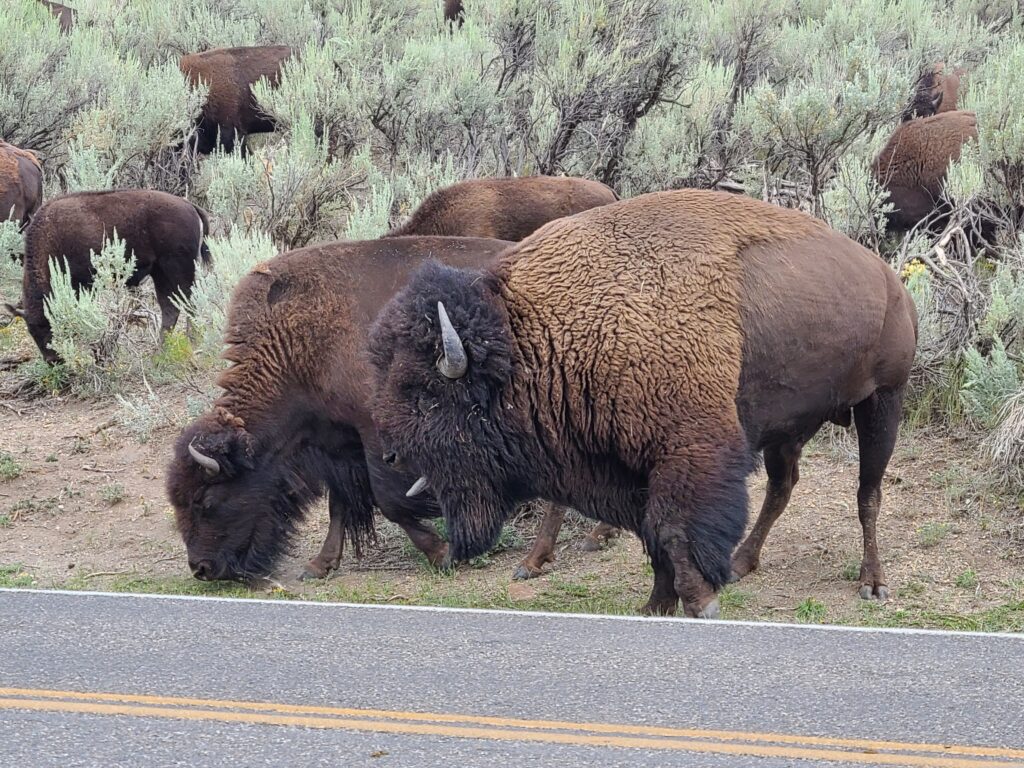
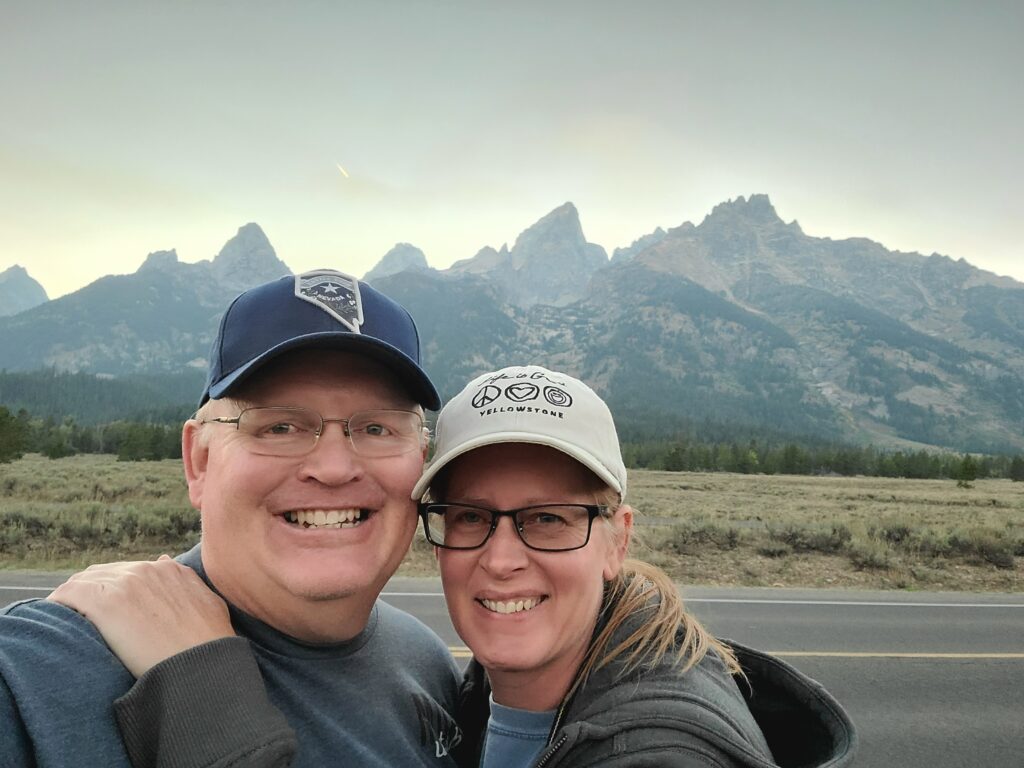
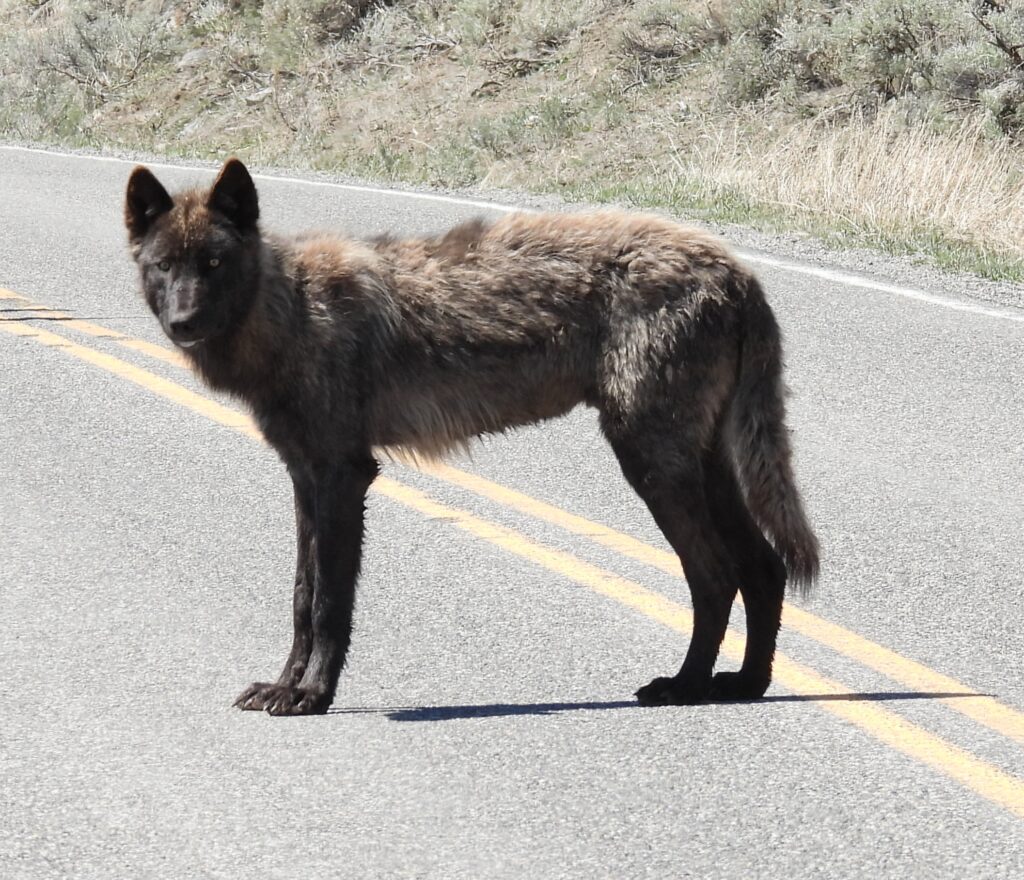

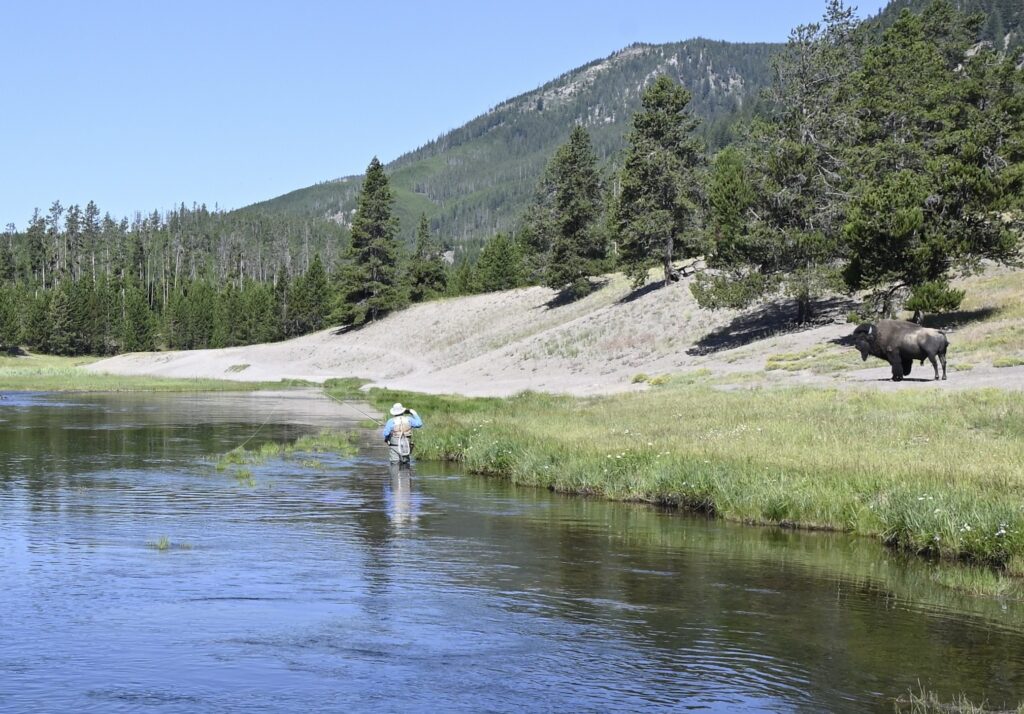
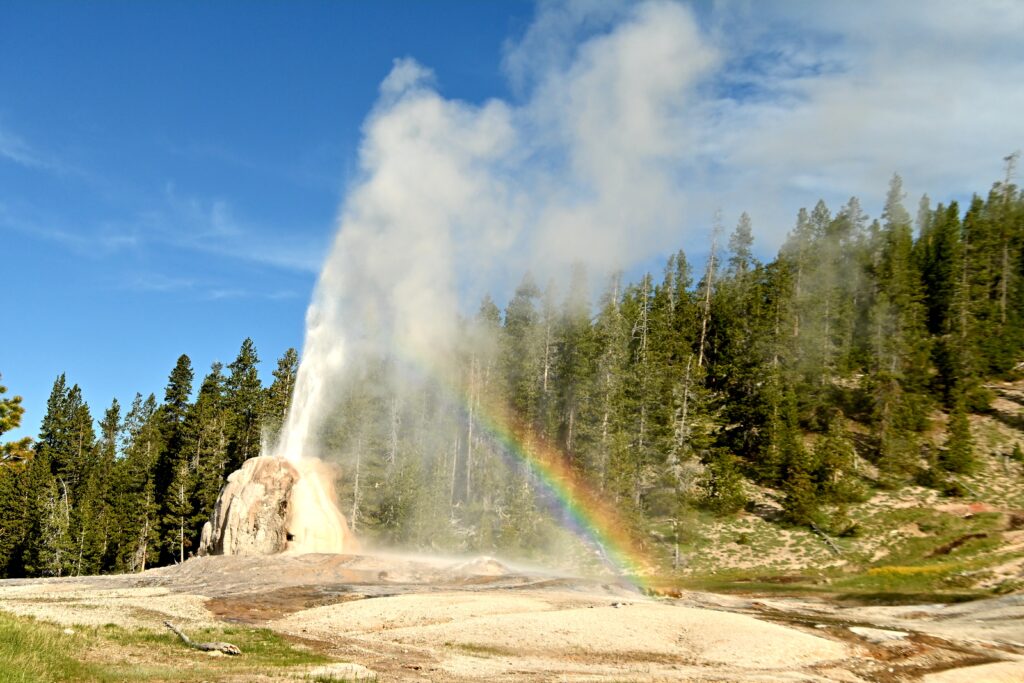
A Built-In Community
One of the unexpected joys of RV life is the RV community. Campgrounds, rallies, and online groups make it easy to meet like-minded travelers who are always ready to share tips, tools, and stories.
We’ve met people during our travels that we still keep in touch with years later—following each other on social media, swapping campground recommendations, and taking inspiration from the places they visit. Even though we’re not traveling together, it’s fun to watch their adventures unfold and add new destinations to our own travel bucket list.
Personal Growth and Life Skills
One of the reasons we jumped into full-time RV living earlier in life was simple—we didn’t want to wait until “someday.” We’d met too many people who had big travel dreams for retirement, only to have life throw them a curveball. Health issues, family emergencies, or loss meant they never got the chance. We decided we wanted to start while we were young and healthy enough to truly enjoy it.
Being a full-time RVer also means learning to be handy. There are always issues that pop up—plumbing leaks, electrical quirks, appliance breakdowns. You don’t have to be a master mechanic, but having a basic understanding of how things work will make it much easier to troubleshoot and fix problems on the road. And for the things you’re not familiar with? YouTube is your best friend.
A perfect example for us was servicing our RV’s air conditioners. I’d never done it before, but after watching a couple of videos and gathering the right tools, I was able to clean and maintain both units myself. Not only did it save us money, but it also gave me a better understanding of how they work—knowledge that will definitely come in handy down the road.
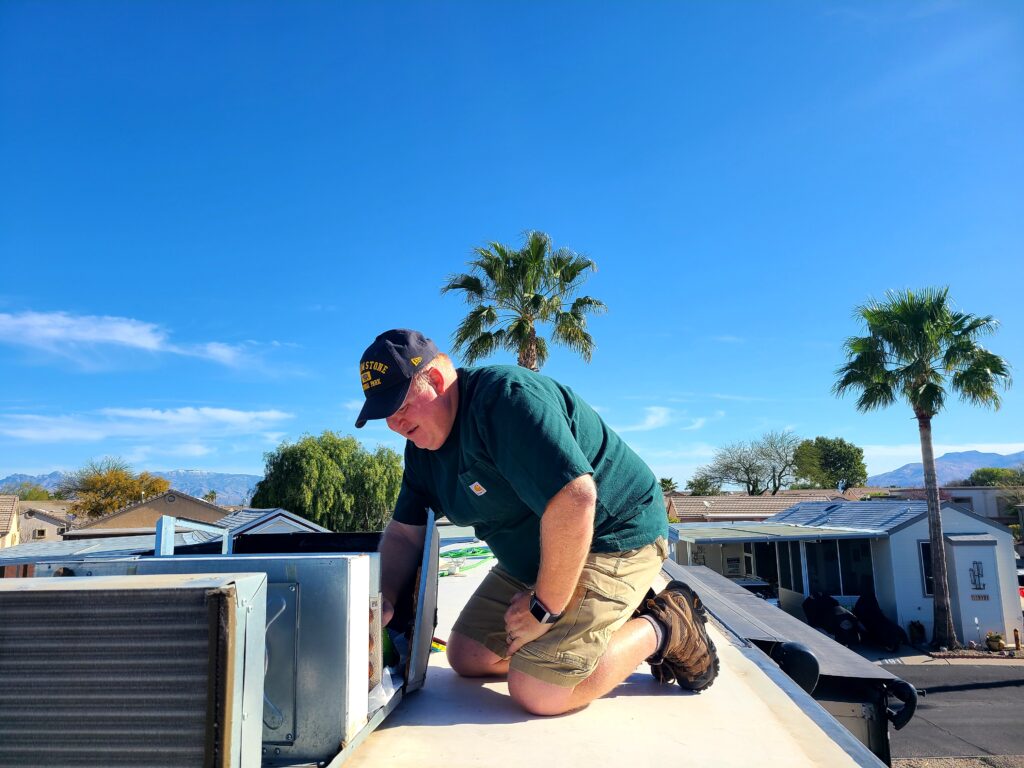
Staying Connected on the Road
One of the most common questions we get is, “How do you get internet while traveling?” The truth is, there’s no one-size-fits-all answer—it depends on your needs and your budget.
For us, reliable internet is essential for work, keeping in touch with family, and streaming our favorite shows. We use two main options:
- Starlink for RVs – Great for remote areas with little or no cell coverage. It’s been a game-changer for staying connected in national parks, BLM land, and rural campgrounds.
- T-Mobile Home Internet – Works surprisingly well almost everywhere we’ve been, and we often use it in our work truck while gate guarding. It’s easy to set up and keeps us online even in more rural spots.
Having both options means we’ve had reliable service no matter where we’ve parked. If you rely on the internet for work or staying connected with family, having at least two solid solutions is worth it, so you’re not caught off guard.
Mail Forwarding & Domicile
When you live in an RV full-time, you still need a legal “home base” for things like taxes, driver’s licenses, vehicle registration, and voting. This is called your domicile, and choosing the right state can make a big difference in your costs and convenience.
Many RVers choose Texas, Florida, or South Dakota because they have no state income tax and are very friendly to full-time travelers. Once you choose a domicile state, you’ll need a mail forwarding service.
We started out using YourBestAddress in South Dakota when we domiciled there. Over time, South Dakota seemed to be becoming less RVer-friendly, plus we found ourselves spending a lot more time in Texas. We decided to move our domicile and switched to the Escapees Mail Service in Texas, becoming Texas residents in the process.
Popular mail forwarding options include:
- Escapees Mail Service (Texas, Florida, South Dakota)
- YourBestAddress or America’s Mailbox (South Dakota)
- Traveling Mailbox (nationwide)
Having a reliable mail forwarding service keeps us organized and legal without being tied to a physical address.
Final Thoughts
Full-time RV living isn’t for everyone, but for those who embrace it, the rewards can be life-changing.
The freedom to travel when and where you want, the ability to control your expenses, the opportunity to connect with nature and community, and the personal growth that comes from a simpler lifestyle all combine to create a deeply fulfilling way of life.
If you’ve ever dreamed about hitting the road, maybe it’s time to stop waiting. Your next great adventure could be waiting just a few miles down the highway.
If you’re looking to build your own home-based business like we have with this webpage, check out Wealthy Affiliate.
Wealthy Affiliate is an all-in-one platform that you can build your whole affiliate marketing business on. It combines training, software, and website hosting into one. This makes the whole process of starting an online business from scratch much easier, especially if you’re new to building a website.

